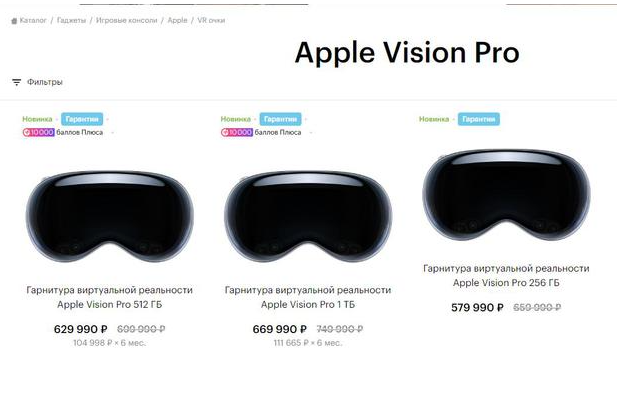Apple Quietly Launches Vision Pro in Moscow Two Years After Exiting Russia
A week after the outbreak of the Russia-Ukraine conflict, Apple announced the suspension of product sales in Russia and the shutdown of certain product features. However, two years later, stores in Moscow are still stocked with Apple products, including the latest model, Vision Pro, now available to Russian consumers.
The Vision Pro headset was launched in the United States at the beginning of this month, currently available only in Apple retail stores and the online Apple store in the US. When asked about the sale of Vision Pro in Russia, an Apple spokesperson stated, “As you know, Vision Pro is currently available only in Apple retail stores in the US.”
Despite this, Russian news reports and the reality in Moscow stores suggest a discrepancy between Apple’s statements and the actual situation. Apple products, including MacBook, iPhone, and iPad, are still for sale in Moscow, albeit at prices potentially higher than before the Russia-Ukraine conflict. The Russian version of Apple’s technical support website remains active, though the official Apple store website has been shut down, displaying only a message in Russian: “The Apple Store is currently closed.”
A former official Apple reseller, re:Store, is reported to have listed Vision Pro for sale on its website, with the cheapest model priced at approximately $6,307, over 57% higher than its retail price in the US.

Prominent Russian tech blogger Sergey Romantsev also noted, “Officially, Apple does not sell any products in Russia. However, Russian companies purchase products from other countries and then transport them to their stores, leading to significant price increases. Thus, the selling price of Vision Pro in Moscow is not $3,500 but over $5,000.”
Romantsev pointed out that some consumers are willing to pay this price, as Apple is very popular in Russia, and there are no difficulties in operating Vision Pro within the country.
In contrast, the scenario for Meta’s Quest 3 is different. Russian courts have banned Facebook and Instagram from the country, branding Meta as an extremist organization, making the activation of Quest 3 quite challenging, among other restrictions.
This situation did not occur by chance. The Russian government has made efforts to ensure the continuous inflow of many Western products into the country. In 2022, Russia’s Ministry of Industry and Trade established a list of goods allowed for parallel importation, including nearly 200 foreign brands such as Apple, Samsung, Tesla, Bentley, and other foreign brands that have exited the Russian market or ceased sales.
The parallel import mechanism allows importers to bring foreign products into the country without the permission of the trademark owners. The Russian government claims that the initiation of parallel imports is aimed at protecting the interests of domestic consumers after the withdrawal of enterprises from “unfriendly” countries and regions from the Russian market.
However, the continued popularity of Apple products in Russia is unlikely to provoke dissatisfaction from the US government. A White House official claimed, “Our focus is on disrupting Russia’s procurement of items for its military-industrial base, and we have not implemented a comprehensive trade embargo. Many devices related to communications have not been restricted in our sanctions and export control lists.”